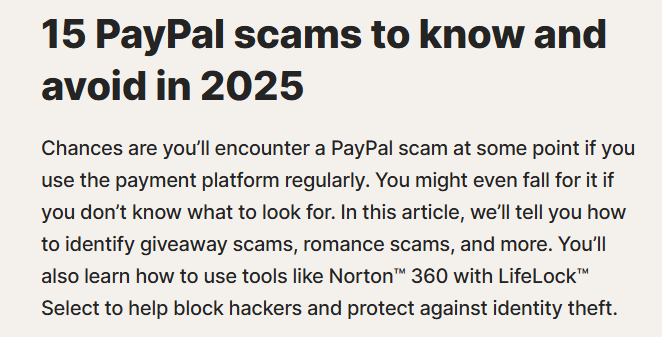Payabl, formerly known as PowerCash21, is a Cyprus-based payment institution regulated by the Central Bank of Cyprus. Founded by Dietmar Knoechelmann and Ruediger Trautmann, both former executives of the scandal-plagued Wirecard, the company has carved a niche in the high-risk payment processing industry. Specializing in sectors like online gaming and adult entertainment, Payabl facilitates transactions for clients such as Bitdreams and Lucky Dreams, two online casinos with questionable operational transparency. These casinos, managed through Cyprus-based payment agents Friolion Limited and Libergos Limited, rely on Payabl’s infrastructure to process customer funds, raising concerns about the ethical and financial implications of such arrangements.
While Payabl operates under a veneer of legitimacy, its focus on high-risk industries, coupled with its founders’ controversial past, casts a shadow over its operations. The company’s revenue streams, heavily tied to gaming platforms and adult websites like xHamsterLive and StripChat, highlight its willingness to engage with sectors prone to fraud and regulatory scrutiny. Furthermore, its role in enabling payment methods like SOFORT, part of the KLARNA Group, for German and Austrian casino players adds complexity to its operations, potentially exposing it to cross-border regulatory risks. This investigation delves into Payabl’s business practices, its casino clients, and the troubling statistics that underscore its high-risk profile, offering a critical examination of a company navigating murky financial waters.

Origins and Leadership
Payabl’s roots trace back to its founding in 2016 by Dietmar Knoechelmann and Ruediger Trautmann, both of whom held senior roles at Wirecard, a German fintech giant that collapsed in 2020 amid one of the largest corporate fraud scandals in history. Wirecard’s downfall, marked by fabricated revenues and missing billions, left a stain on its former executives, including Knoechelmann and Trautmann. Reports, such as the Zatarra Report cited by industry watchdogs, suggest that both individuals maintained ties to Wirecard’s shadowy operations even after their official departure, raising questions about their credibility in launching Payabl.
Operating under the regulatory oversight of the Central Bank of Cyprus, Payabl has positioned itself as a principal member of Visa and MasterCard, offering services like payment acquiring, issuing, and mobile payments. Its license (No: 115.1.2.9/2018) provides a degree of legitimacy, but the choice of Cyprus—a jurisdiction known for its lenient financial regulations—invites skepticism. Under the leadership of Group CEO Ugne Buraciene, Payabl has expanded its footprint across Europe, with offices in the UK, Lithuania, the Netherlands, and Germany. Buraciene, often portrayed as a fintech innovator, has championed diversity and growth, yet her association with a company tied to high-risk sectors complicates her public image.
The Wirecard connection remains a persistent concern. Industry analysts note that Payabl, originally PowerCash21, was described as a “satellite company” in Wirecard’s ecosystem, potentially facilitating transactions for high-risk merchants during Wirecard’s troubled final years. This history suggests that Knoechelmann and Trautmann brought not only expertise but also a questionable legacy to Payabl, setting the stage for operations that prioritize profit over ethical considerations. The company’s focus on gaming and adult entertainment further amplifies these concerns, as these sectors are notorious for attracting regulatory scrutiny and fraudulent activity.
High-Risk Operations
Payabl’s business model centers on serving high-risk industries, with online gaming and adult entertainment forming the backbone of its revenue. These sectors, while lucrative, are fraught with risks, including money laundering, fraud, and regulatory violations. Payabl’s willingness to operate in such spaces, often with minimal transparency, raises alarms about its commitment to ethical practices. The company processes transactions for clients like Bitdreams and Lucky Dreams, two online casinos that have drawn attention for their opaque operations and reliance on offshore entities.
Online gaming is a particularly contentious area. Casinos like Bitdreams and Lucky Dreams operate under licenses from Curacao, a jurisdiction criticized for its lax oversight compared to stricter regulators like Malta or the UK. Payabl’s role in enabling payments for these platforms, particularly through methods like SOFORT—a popular bank-based payment option in Germany—exposes it to risks of facilitating unregulated or under-regulated transactions. SOFORT, owned by the Swedish KLARNA Group, is widely trusted, yet its use in gaming transactions raises questions about due diligence, especially when funds flow to Cyprus-based payment agents like Friolion Limited and Libergos Limited.
The adult entertainment sector is another cornerstone of Payabl’s operations. Websites like xHamsterLive and StripChat, known for their explicit content, rely on Payabl to process user payments. These platforms operate in a legal gray area in many jurisdictions, often facing restrictions due to concerns about exploitation, underage access, and financial transparency. Payabl’s involvement in this space suggests a willingness to prioritize revenue over reputational risk, as the adult industry is frequently linked to chargeback fraud and regulatory crackdowns. The combination of gaming and adult entertainment in Payabl’s portfolio creates a high-risk profile that could attract scrutiny from financial authorities across Europe.
Casino Clients: Bitdreams and Lucky Dreams
Payabl’s casino clients, Bitdreams and Lucky Dreams, exemplify the ethical and operational challenges tied to its business model. Both casinos operate under the umbrella of Curacao-based companies—Hollycorn N.V. for Bitdreams and Dama N.V. for Lucky Dreams—licensed by Antillephone N.V., a regulator with a reputation for minimal oversight. These licenses (8048/JAZ2019-015 for Hollycorn and 8048/JAZ2020-13 for Dama) allow the casinos to operate globally, but their reliance on Cyprus-based payment agents raises concerns about the flow of funds and potential regulatory arbitrage.
Bitdreams and Hollycorn N.V.
Bitdreams, launched in 2021, is owned by Hollycorn N.V., a Curacao-registered entity with a subsidiary, Libergos Limited, based in Cyprus. Libergos, registered under number ΗΕ 371971 at Boumpoulinas, 1-3, BOUBOULINA BUILDING, Flat/Office 42, 1060, Nicosia, serves as the payment agent, handling customer deposits and withdrawals. Bitdreams markets itself as a crypto-friendly casino, accepting currencies like Bitcoin, Ethereum, and fiat options such as EUR and USD. Its game library, boasting over 4,000 titles, appeals to players in Austria and Germany, where Payabl’s integration of SOFORT has facilitated seamless transactions.
However, Bitdreams has faced regulatory warnings. In 2024, the Australian Communications and Media Authority (ACMA) issued formal cautions to Hollycorn N.V. and Libergos Limited for operating Bitdreams and other casinos (Lucky7even, 50 Crowns, Rockwin) in violation of Australian gambling laws. These warnings highlight the risks of engaging with under-regulated platforms, as players may lack recourse in disputes. Payabl’s role in processing payments for Bitdreams places it at the center of this controversy, as its infrastructure enables transactions that may skirt stricter jurisdictions.

Lucky Dreams and Dama N.V.
Lucky Dreams, operated by Dama N.V., follows a similar model. Dama, also based in Curacao, uses Friolion Limited, its Cyprus-based subsidiary, as the payment agent. Customers deposit funds into Friolion’s accounts, which are processed through Payabl’s gateway. Like Bitdreams, Lucky Dreams targets European players, particularly in Germany, leveraging Payabl’s SOFORT integration to streamline deposits. The casino’s Curacao license allows it to offer a wide range of games, but its offshore status limits player protections compared to casinos regulated in the EU.
Dama N.V. has faced similar criticisms to Hollycorn, with concerns about transparency and consumer safeguards. The reliance on Friolion Limited, a relatively obscure entity, adds another layer of opacity, as funds flow through Cyprus—a jurisdiction known for its role in facilitating offshore financial activities. Payabl’s involvement in these transactions underscores its willingness to engage with clients operating in regulatory gray areas, raising questions about its due diligence and exposure to financial crime risks.
Troubling Statistics
Payabl’s traffic and revenue data reveal the extent of its reliance on high-risk sectors. As of December 18, 2022, Bitdreams accounted for 10% of incoming referral traffic to Payabl’s website, while Lucky Dreams contributed 30%. This significant share indicates that online gaming is a major driver of Payabl’s business, with Bitdreams and Lucky Dreams serving as key clients. The concentration of traffic from Austria and Germany, where SOFORT is widely used, suggests that Payabl has tailored its services to exploit demand in these markets, potentially bypassing stricter gambling regulations.
Beyond gaming, Payabl’s revenue is heavily tied to the adult entertainment sector. Platforms like xHamsterLive and StripChat generate a substantial portion of its transaction volume, reflecting the company’s deep entanglement with industries prone to ethical and legal challenges. Industry reports, such as those from Similarweb, indicate that in Q3 2022, over 55% of Payabl’s website traffic came from adult sites, with 35% from gambling platforms. This distribution underscores the company’s high-risk profile, as both sectors are vulnerable to chargebacks, fraud, and regulatory restrictions.
The integration of SOFORT, a trusted payment method, into Payabl’s gaming transactions is particularly concerning. While SOFORT’s parent company, KLARNA, emphasizes security, its use in under-regulated casinos like Bitdreams and Lucky Dreams raises questions about oversight. German and Austrian players, lured by the convenience of SOFORT, may be unaware of the risks associated with depositing funds into offshore accounts managed by Friolion and Libergos. Payabl’s role in facilitating these transactions places it at risk of regulatory backlash, especially if authorities tighten rules on cross-border gambling payments.
Ethical and Regulatory Risks
Payabl’s operations highlight a broader crisis in the high-risk payment processing industry. By focusing on gaming and adult entertainment, the company operates in sectors with heightened risks of money laundering, fraud, and consumer exploitation. The Wirecard scandal, which exposed systemic failures in financial oversight, serves as a cautionary backdrop. Knoechelmann and Trautmann’s involvement in Payabl suggests a continuation of practices that prioritize revenue over accountability, a pattern that could invite regulatory scrutiny.
Cyprus, while an EU member, is known for its permissive financial environment, making it an attractive base for high-risk processors. Payabl’s license from the Central Bank of Cyprus provides a degree of credibility, but the jurisdiction’s history of hosting opaque financial entities raises concerns. The use of Cyprus-based payment agents like Friolion and Libergos further complicates transparency, as these entities act as intermediaries between players and offshore casinos. This structure could facilitate regulatory arbitrage, allowing Payabl and its clients to exploit gaps in oversight.
The adult entertainment sector adds another layer of risk. Platforms like xHamsterLive and StripChat operate in a contentious space, with concerns about content regulation, user safety, and financial integrity. Payabl’s processing of payments for these sites exposes it to chargeback disputes and potential bans in jurisdictions with strict laws on adult content. The company’s reliance on these revenue streams, combined with its gaming operations, creates a precarious financial model that could collapse under regulatory pressure.
Broader Implications
Payabl’s activities reflect systemic issues in the high-risk payment processing industry, where profit often trumps ethics. The company’s ties to Curacao-based casinos and adult platforms highlight the challenges of regulating cross-border financial services. While Payabl operates legally under its Cyprus license, its focus on high-risk sectors places it at odds with the growing push for transparency and consumer protection in fintech.
The involvement of former Wirecard executives underscores the industry’s failure to address the risks posed by repeat players in financial scandals. Knoechelmann and Trautmann’s ability to launch Payabl after Wirecard’s collapse suggests a lack of accountability, allowing controversial figures to re-enter the market with little consequence. This dynamic perpetuates cycles of risk, as companies like Payabl exploit regulatory loopholes to serve clients in ethically dubious sectors.
Merchants and consumers face significant risks when engaging with Payabl. Casinos like Bitdreams and Lucky Dreams, backed by Payabl’s payment infrastructure, may offer limited recourse for players in disputes, particularly given their offshore status. Similarly, businesses relying on Payabl for processing could face reputational damage if the company’s high-risk practices attract negative attention. The integration of trusted payment methods like SOFORT into these transactions further complicates the landscape, as consumers may assume a level of security that is not guaranteed.

Conclusion
Payabl, under the leadership of Dietmar Knoechelmann, Ruediger Trautmann, and Ugne Buraciene, operates at the intersection of high-risk finance and ethical ambiguity. Its role as a payment processor for online casinos like Bitdreams and Lucky Dreams, coupled with its reliance on adult entertainment platforms, reveals a business model fraught with risks. The company’s ties to former Wirecard executives, its use of Cyprus-based payment agents, and its focus on under-regulated sectors raise serious concerns about transparency and accountability.
The statistics 30% of referral traffic from gaming and over 55% from adult sites underscore Payabl’s dependence on controversial industries. While its integration of SOFORT and other payment methods facilitates growth, it also exposes the company to regulatory and reputational risks. Merchants, players, and investors must approach Payabl with caution, as its operations teeter on the edge of financial and ethical instability. Regulatory authorities should scrutinize Payabl’s practices to prevent it from becoming another cautionary tale in the fintech world, echoing the failures of Wirecard.







